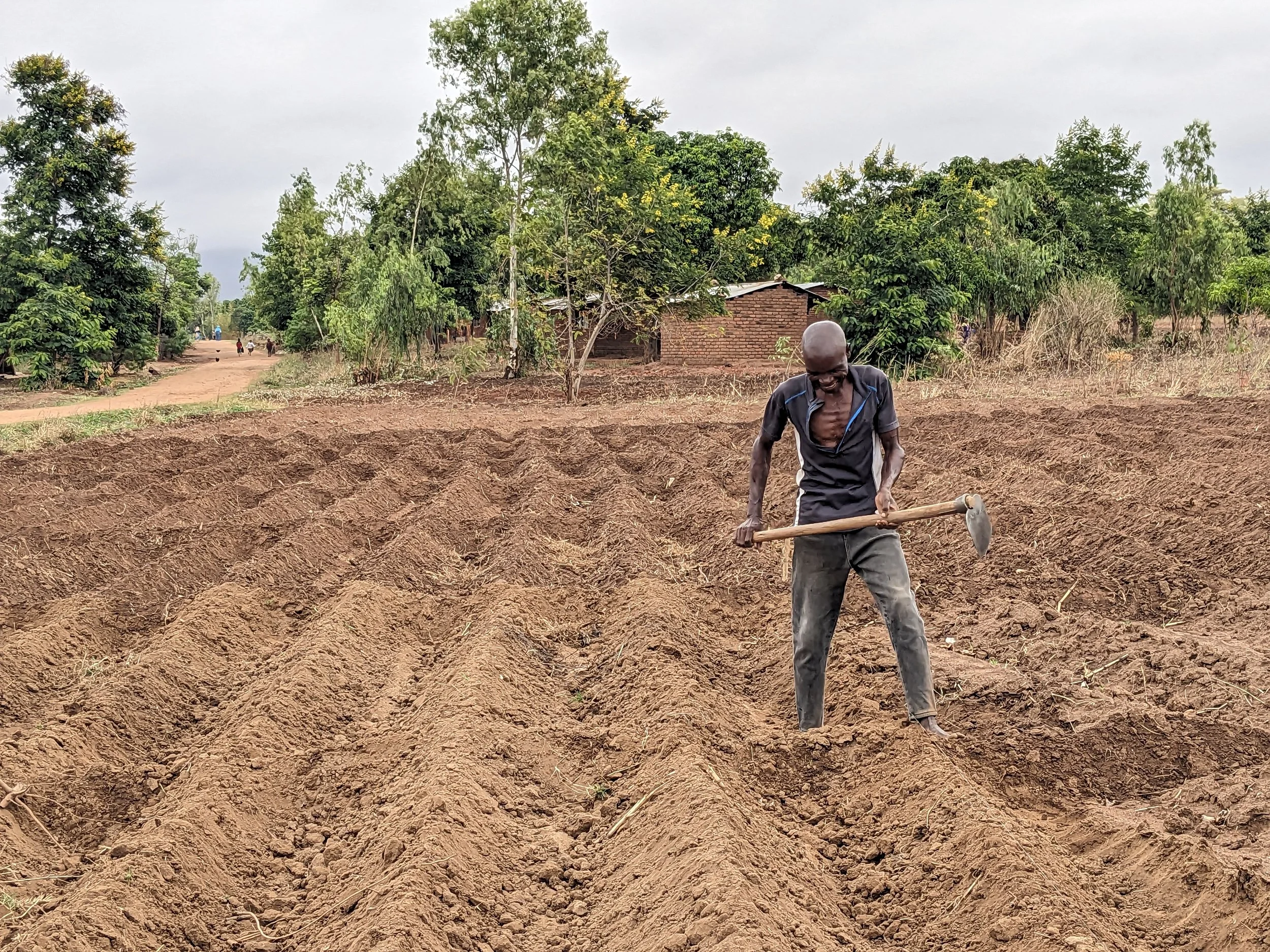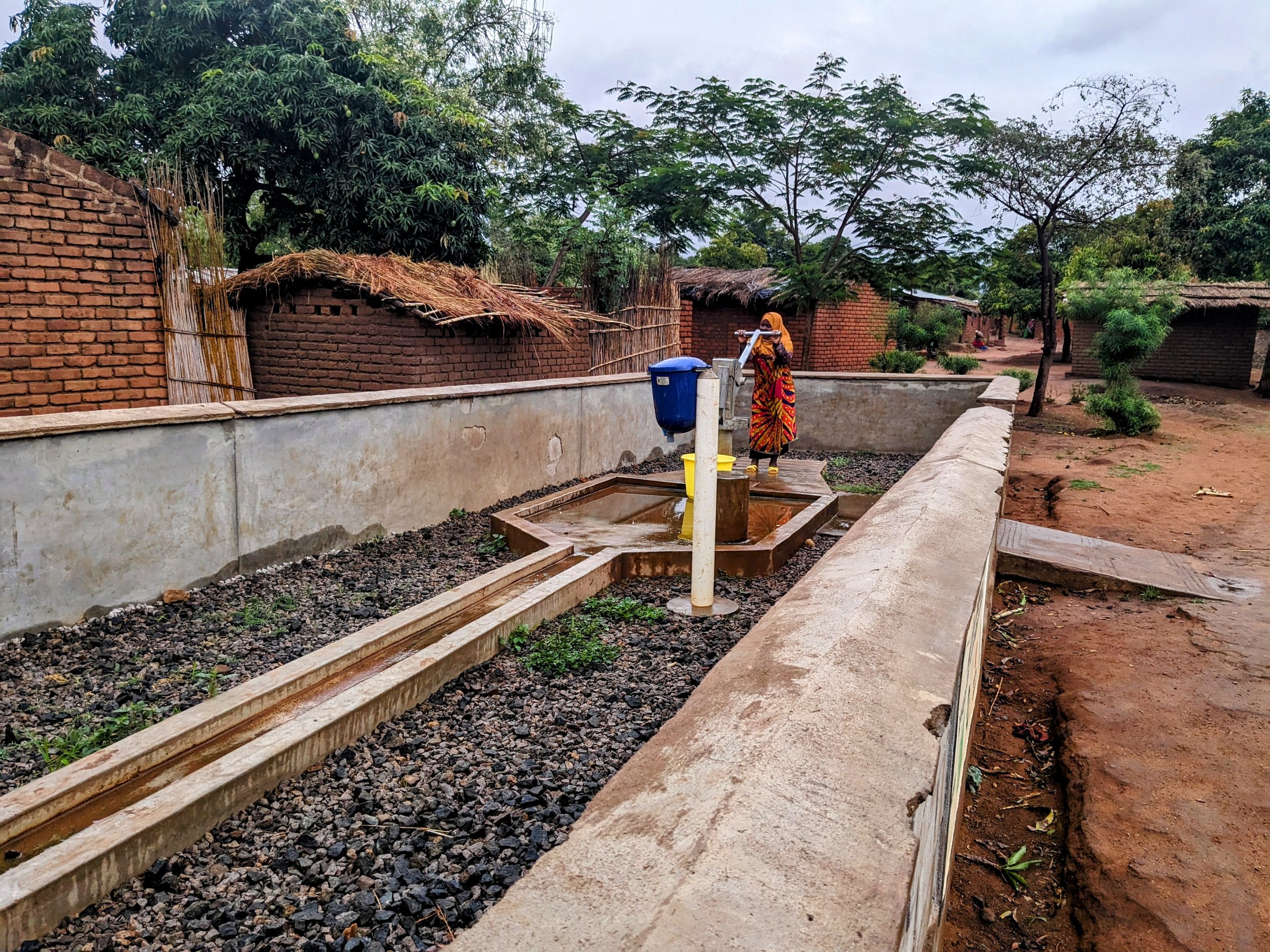
I’ve spent this month (November 2023) in Malawi, the site of Appleseed’s latest project — a collaboration with One Acre Fund to help small farmers.

Most Malawians are subsistence maize farmers. Unfortunately, population growth and having just one rainy season make it very difficult to grow enough food and earn money. People are now going hungry.

In the months leading up to planting time, farmers worry if they will be able to afford fertilizers. This man finally got his, just enough for his one acre of land where he will plant maize.

Farmers do all they can to prevent erosion, such as piling their soil into ridges before planting. However this isn’t enough to repair soil health. Organic matter is needed.

Maize crop residue — the stalks and leaves — are the key ingredient to restoring soil. It would help everyone if farmers would bury their residues after harvest.

Instead of burying these precious residues for soil health, many farmers burn them. This is an easy way to clear the land and it kills pests. The short term gain causes long term pain.

Our partners at One Acre Fund make it possible for farmers to afford high quality seeds and fertilizers. Now they’ve hired Appleseed’s behavioral team to figure out how to get farmers to bury their residues.

Here’s part of our research team! The work begins with understanding farmers’ experiences, challenges, motivations, and other factors which influence their behaviors.

This farmer showed us just how much effort and time it takes to bury all his residues. Also, doing this means NOT doing something else, such as picking up other work to put food on his table for his family.

For 8 years, these women have been part of a group that supports each other with farming. Together, they purchase fertilizers and learn new techniques from One Acre Fund. They were honest in sharing the fact that they don’t practice everything they learn.

Motorbikes like this one are hard to come by. Most people go everywhere on foot. A lack of transport and wasted time was one of the complaints we heard about most.

To cook, people must burn something. When they are not using their crop residues, they are cutting down trees. Despite many NGOs telling people to stop deforestation, they cannot and will not stop until they have another source of fuel.

Can you imagine walking barefoot down a mountain carrying this every week? My teammate, Lydia, and I tried lifting a bundle weighing 200 lb. and we could not do it.
































This is Winfrey, my trusty Chichewa language interpreter and notetaker.



















































